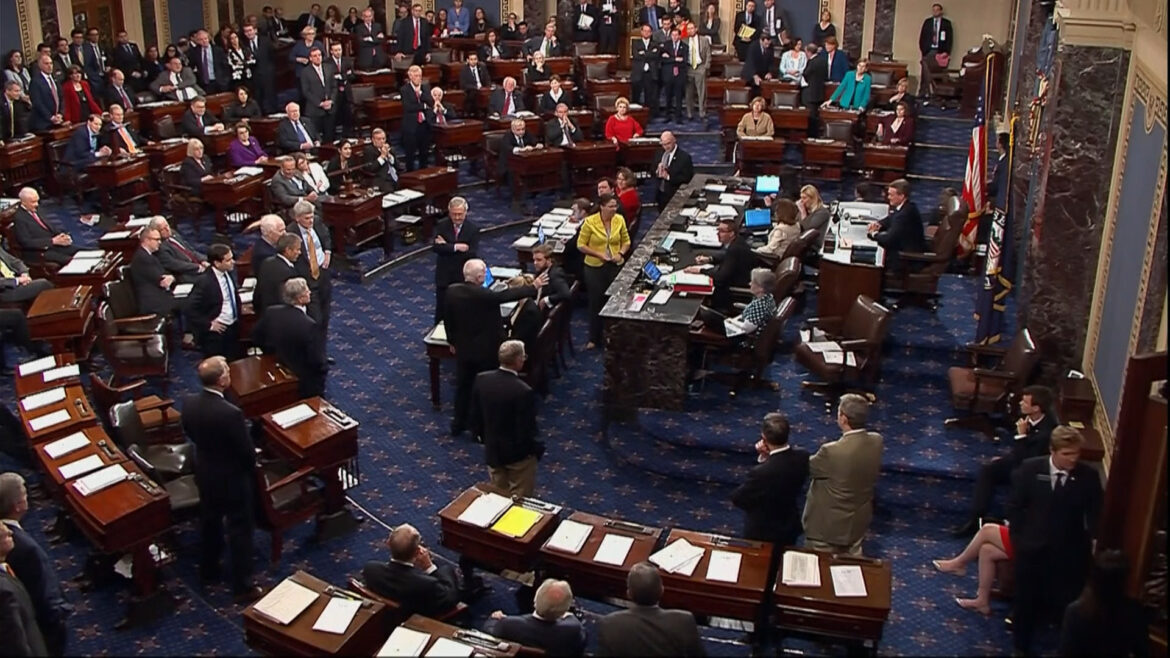The U.S. House of Representatives voted to repeal a controversial tax rule that requires “custodial brokers” to collect and report user data to the Internal Revenue Service, teeing it up to the Senate. Notably, the vote passed with a bipartisan supermajority with support from 291 House Members. The House voted on Tuesday to approve a joint resolution by Rep. Mike Carey, R-Ohio, and Sen. Ted Cruz, R-Texas, that would repeal an IRS rule finalized in December that requires “DeFi brokers” to act like traditional securities brokers and collect information about their users’ trades.
“The House just passed my bill to repeal the IRS DeFi Broker Rule in a strong, bipartisan fashion. Now we need to get it on @POTUS’s desk and signed into law,” Carey said on X. The IRS rule would push American companies and tax revenue overseas, Carey said on Tuesday on the House floor. “It is essential that we pass this legislation today to avoid this nightmare from the IRS and for the American taxpayers, while ensuring that the United States is in a position to lead the world in innovation with the digital asset and cryptocurrency sector,” Carey said.
A U.S. House tax committee voted 26-16 in February to advance that resolution. The Senate voted 70-28 last week on a joint resolution from Sen. Cruz. Next, the resolution will go to the Senate again before going to Trump’s desk because it was paired with a budget measure, a person familiar said. Trump is expected to sign the resolution; White House Crypto A.I. and Crypto Czar David Sacks said last week that Trump’s senior advisors plan to recommend he do so.
“This rule, issued as a midnight regulation in the final days of the previous Administration, would stifle American innovation and raise privacy concerns over the sharing of taxpayers’ personal information, while imposing an unprecedented compliance burden on American DeFi companies,” according to the administration’s statement.
Although Republicans mostly voted to repeal the rule, some Democrats did, including Senate Minority Leader Chuck Schumer and Sen. John Fetterman of Pennsylvania. Schumer previously voted to repeal a U.S. Securities and Exchange Commission bulletin establishing certain accounting standards for firms that custody crypto.
Under the rule, which went into effect in the beginning of this year during the last days of the Biden administration, some “decentralized finance industry participants” would have had to send their customers Form 1099 tax returns. These returns report payments that aren’t from an employer, like gambling winnings, rents and royalties.
The U.S. Treasury Department noted the finalized rule applies to “front-end service providers” that interact “directly with customers,” which suggests entities that run the primary website used to access a decentralized protocol, rather than the protocol itself. The Blockchain Association and two other groups sued the IRS quickly after the rule was finalized and warned the requirements would “push this entire, burgeoning technology offshore.”
Some Democrats had opposed the resolution and said the Republicans were trying to weaken the IRS. “They are the party that has consistently underfunded the IRS,” said Rep. Richard Neal, D-Mass., in a hearing in February. On Tuesday, Rep. Danny Davis, D-Ill., said he opposed the resolution, due in part to it adding billions to the deficit. “I appreciate the heartfelt arguments from my colleagues on the other side of the aisle, but at the end of the day, it’s hard for me to overcome the fact that this bill would add $4 billion to the deficit solely due to taxpayer noncompliance,” Davis said on the House floor.
- Crypto’s Fairshake PAC Backs Republicans With Last-Minute Cash in Florida Races
- OpenSea Gets ‘Wells Notice’ From SEC, Which Calls NFTs Sold on Platform ‘Securities’
- Court Denies SEC, Ripple Settlement Motion After Finding Procedural Misstep
- No Bitcoin Mention by Trump or Biden in First Uninspiring Presidential Debate
- Judge Dismisses Counts Related to BUSD, BNB Sales in SEC-Binance Lawsuit
- Michigan Pension Fund Adds $6.6 Million in Bitcoin ETF Holdings






